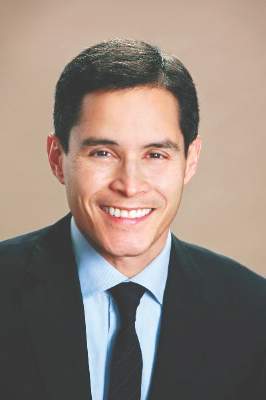User login
Adalimumab has made a big difference in the lives of hidradenitis suppurativa patients at Dr. Jeffrey Sobell’s dermatology clinic, SkinCare Physicians in Chestnut Hill, Mass.
Hidradenitis suppurativa (HS) “is a nightmare, probably the most negatively life-impacting disease we see in all of dermatology. We finally have a therapy to address it.” Adalimumab “has been life changing for a number of my patients,” he said at the SDEF Hawaii Dermatology Seminar.
The tumor necrosis factor inhibitor is the first Food and Drug Administration–approved treatment for the condition; an indication for moderate to severe disease in adults was added to labeling in September 2015. Dr. Sobell estimates he’s used adalimumab in about 20 HS patients, with more successes than failures.
“It’s a disease that’s embarrassing, occurring in areas of the skin that nobody wants to show their doctor or talk to their friends or family about. It’s not just pain; there’s a lot of drainage from the lesions that can be very malodorous, and that’s just devastating for patients. It impacts all aspects of people’s lives. Socially, people become very isolated; with employment, people go on disability because of the pain. [Adalimumab] has really brought many of my patients back to life,” said Dr. Sobell, also an assistant professor of dermatology at Tufts University School of Medicine, Boston.
In two phase III trials, about 53% of patients, versus about a quarter of placebo patients, had a 50% or more reduction in inflammatory nodules and abscesses. Overall, “more than half of patients achieve a clinically meaningful improvement by week 12, which correlates with improvements in quality of life and work productivity, Dr. Sobell said at the Hawaii Dermatology Seminar provided by Global Academy for Medical Education/Skin Disease Education Foundation.
“What I find with most patients is a reduction in the frequency, severity, and intensity of flare-ups, and a reduction in the amount of time someone has active lesions. It doesn’t completely put patients into remission, but it really improves their” lives, he added.
Dr. Sobell turns to adalimumab when standard treatments – typically oral antibiotics – aren’t working, or when there’s scarring, sinus tract formation, or poorly controlled pain.
The dose is the same as for inflammatory bowel disease and higher than what dermatologists are used to using for psoriasis. HS patients start out with a loading dose of 160 mg, followed by 80 mg at week 2, and a weekly 40 mg maintenance dose starting at week 4. When adalimumab works, patients can start responding in as early as 2 weeks, and results seem durable. Dr. Sobell said that he has not noticed any decline in response with time, including in one patient who’s going into the fourth year on the medication, after it was started off label.
Higher doses are needed because HS patients tend to be heavier than psoriasis patients, and their lesions have higher levels of tumor necrosis factors and other inflammatory cytokines.
Dr. Sobell said that he has not had a problem with side effects, despite the higher doses. None of his HS patients have developed serious infections or medication-associated cancers, the main concerns with adalimumab. In trials, safety was similar in HS and psoriasis patients, and that’s what he’s seen in his practice. “I haven’t had any more problems with my HS patients than with my psoriasis patients,” he said.
Dr. Sobell disclosed relationships with numerous pharmaceutical companies, including AbbVie, which markets adalimumab as Humira.
SDEF and this news organization are owned by the same parent company.
Adalimumab has made a big difference in the lives of hidradenitis suppurativa patients at Dr. Jeffrey Sobell’s dermatology clinic, SkinCare Physicians in Chestnut Hill, Mass.
Hidradenitis suppurativa (HS) “is a nightmare, probably the most negatively life-impacting disease we see in all of dermatology. We finally have a therapy to address it.” Adalimumab “has been life changing for a number of my patients,” he said at the SDEF Hawaii Dermatology Seminar.
The tumor necrosis factor inhibitor is the first Food and Drug Administration–approved treatment for the condition; an indication for moderate to severe disease in adults was added to labeling in September 2015. Dr. Sobell estimates he’s used adalimumab in about 20 HS patients, with more successes than failures.
“It’s a disease that’s embarrassing, occurring in areas of the skin that nobody wants to show their doctor or talk to their friends or family about. It’s not just pain; there’s a lot of drainage from the lesions that can be very malodorous, and that’s just devastating for patients. It impacts all aspects of people’s lives. Socially, people become very isolated; with employment, people go on disability because of the pain. [Adalimumab] has really brought many of my patients back to life,” said Dr. Sobell, also an assistant professor of dermatology at Tufts University School of Medicine, Boston.
In two phase III trials, about 53% of patients, versus about a quarter of placebo patients, had a 50% or more reduction in inflammatory nodules and abscesses. Overall, “more than half of patients achieve a clinically meaningful improvement by week 12, which correlates with improvements in quality of life and work productivity, Dr. Sobell said at the Hawaii Dermatology Seminar provided by Global Academy for Medical Education/Skin Disease Education Foundation.
“What I find with most patients is a reduction in the frequency, severity, and intensity of flare-ups, and a reduction in the amount of time someone has active lesions. It doesn’t completely put patients into remission, but it really improves their” lives, he added.
Dr. Sobell turns to adalimumab when standard treatments – typically oral antibiotics – aren’t working, or when there’s scarring, sinus tract formation, or poorly controlled pain.
The dose is the same as for inflammatory bowel disease and higher than what dermatologists are used to using for psoriasis. HS patients start out with a loading dose of 160 mg, followed by 80 mg at week 2, and a weekly 40 mg maintenance dose starting at week 4. When adalimumab works, patients can start responding in as early as 2 weeks, and results seem durable. Dr. Sobell said that he has not noticed any decline in response with time, including in one patient who’s going into the fourth year on the medication, after it was started off label.
Higher doses are needed because HS patients tend to be heavier than psoriasis patients, and their lesions have higher levels of tumor necrosis factors and other inflammatory cytokines.
Dr. Sobell said that he has not had a problem with side effects, despite the higher doses. None of his HS patients have developed serious infections or medication-associated cancers, the main concerns with adalimumab. In trials, safety was similar in HS and psoriasis patients, and that’s what he’s seen in his practice. “I haven’t had any more problems with my HS patients than with my psoriasis patients,” he said.
Dr. Sobell disclosed relationships with numerous pharmaceutical companies, including AbbVie, which markets adalimumab as Humira.
SDEF and this news organization are owned by the same parent company.
Adalimumab has made a big difference in the lives of hidradenitis suppurativa patients at Dr. Jeffrey Sobell’s dermatology clinic, SkinCare Physicians in Chestnut Hill, Mass.
Hidradenitis suppurativa (HS) “is a nightmare, probably the most negatively life-impacting disease we see in all of dermatology. We finally have a therapy to address it.” Adalimumab “has been life changing for a number of my patients,” he said at the SDEF Hawaii Dermatology Seminar.
The tumor necrosis factor inhibitor is the first Food and Drug Administration–approved treatment for the condition; an indication for moderate to severe disease in adults was added to labeling in September 2015. Dr. Sobell estimates he’s used adalimumab in about 20 HS patients, with more successes than failures.
“It’s a disease that’s embarrassing, occurring in areas of the skin that nobody wants to show their doctor or talk to their friends or family about. It’s not just pain; there’s a lot of drainage from the lesions that can be very malodorous, and that’s just devastating for patients. It impacts all aspects of people’s lives. Socially, people become very isolated; with employment, people go on disability because of the pain. [Adalimumab] has really brought many of my patients back to life,” said Dr. Sobell, also an assistant professor of dermatology at Tufts University School of Medicine, Boston.
In two phase III trials, about 53% of patients, versus about a quarter of placebo patients, had a 50% or more reduction in inflammatory nodules and abscesses. Overall, “more than half of patients achieve a clinically meaningful improvement by week 12, which correlates with improvements in quality of life and work productivity, Dr. Sobell said at the Hawaii Dermatology Seminar provided by Global Academy for Medical Education/Skin Disease Education Foundation.
“What I find with most patients is a reduction in the frequency, severity, and intensity of flare-ups, and a reduction in the amount of time someone has active lesions. It doesn’t completely put patients into remission, but it really improves their” lives, he added.
Dr. Sobell turns to adalimumab when standard treatments – typically oral antibiotics – aren’t working, or when there’s scarring, sinus tract formation, or poorly controlled pain.
The dose is the same as for inflammatory bowel disease and higher than what dermatologists are used to using for psoriasis. HS patients start out with a loading dose of 160 mg, followed by 80 mg at week 2, and a weekly 40 mg maintenance dose starting at week 4. When adalimumab works, patients can start responding in as early as 2 weeks, and results seem durable. Dr. Sobell said that he has not noticed any decline in response with time, including in one patient who’s going into the fourth year on the medication, after it was started off label.
Higher doses are needed because HS patients tend to be heavier than psoriasis patients, and their lesions have higher levels of tumor necrosis factors and other inflammatory cytokines.
Dr. Sobell said that he has not had a problem with side effects, despite the higher doses. None of his HS patients have developed serious infections or medication-associated cancers, the main concerns with adalimumab. In trials, safety was similar in HS and psoriasis patients, and that’s what he’s seen in his practice. “I haven’t had any more problems with my HS patients than with my psoriasis patients,” he said.
Dr. Sobell disclosed relationships with numerous pharmaceutical companies, including AbbVie, which markets adalimumab as Humira.
SDEF and this news organization are owned by the same parent company.
EXPERT ANALYSIS FROM The SDEF HAWAII DERMATOLOGY SEMINAR

